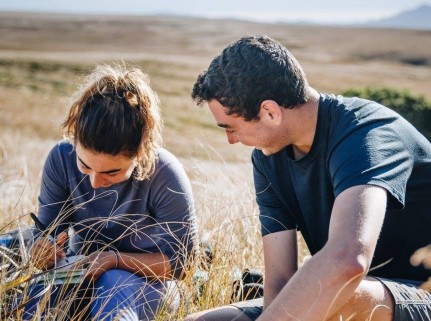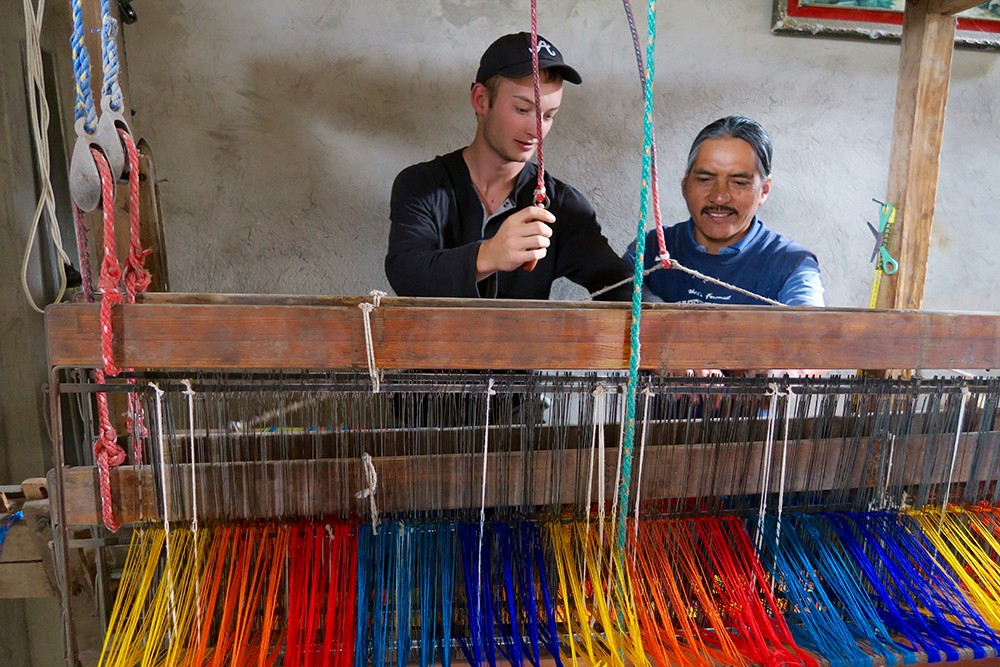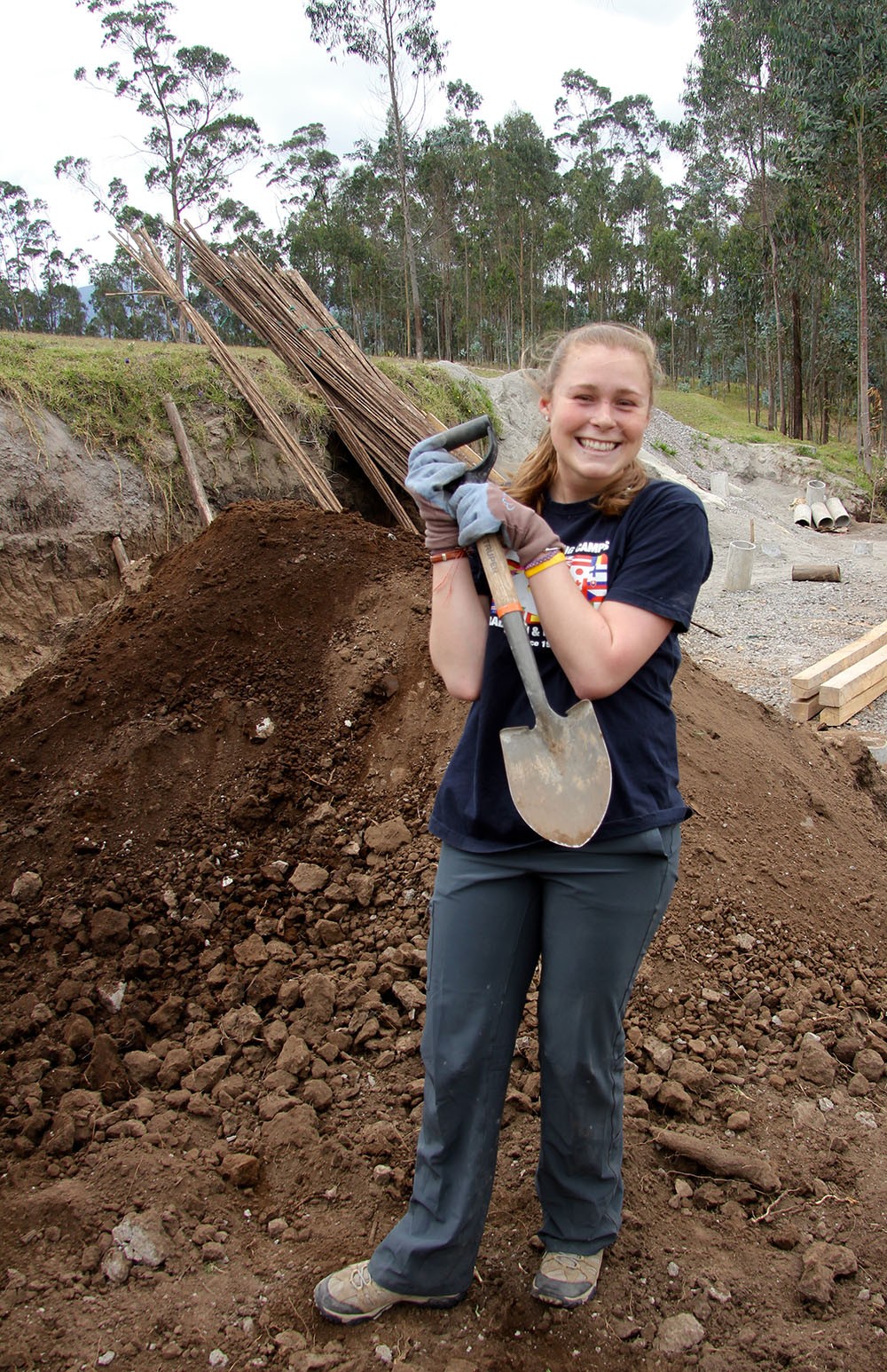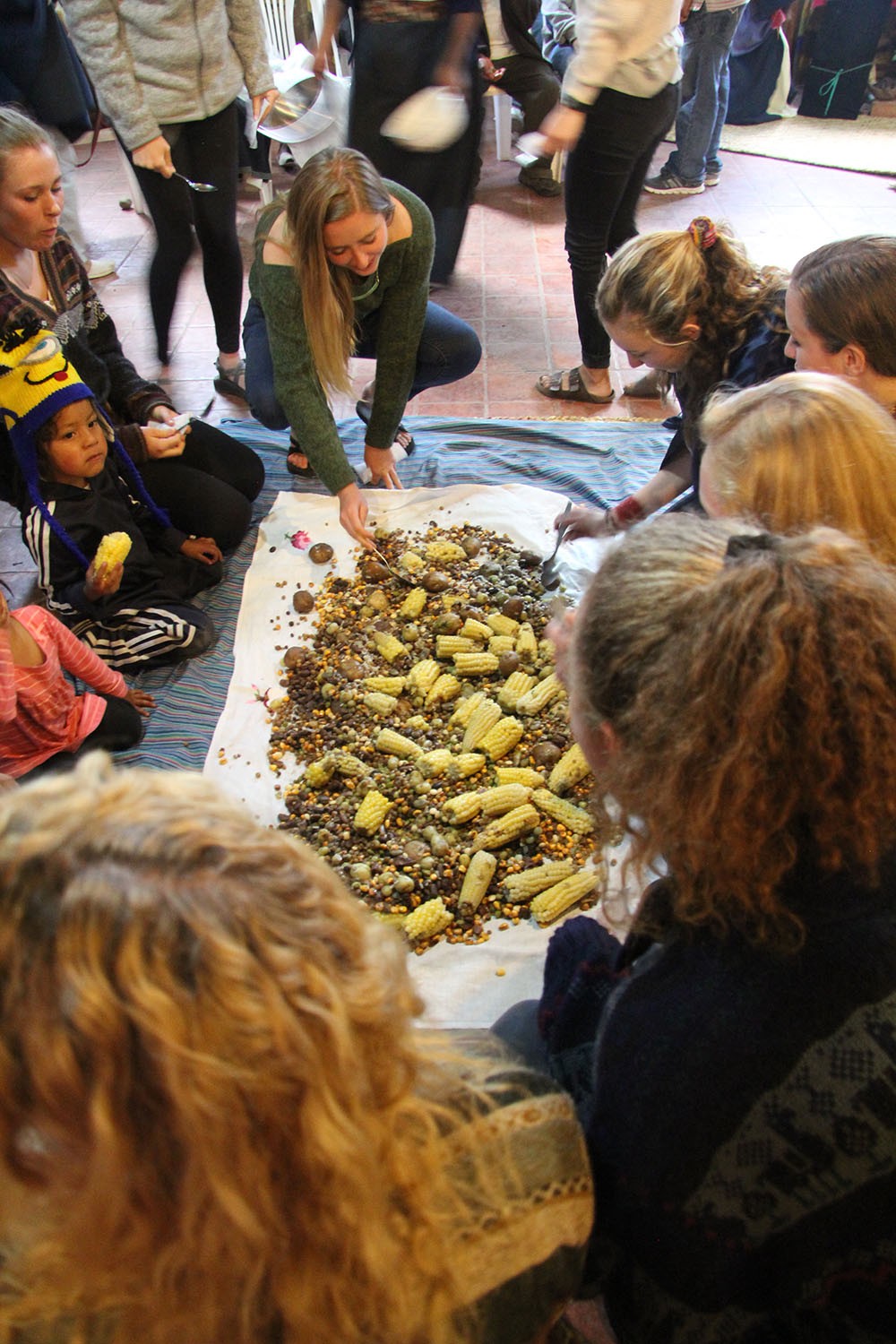After journeying from one country capital to another, I thought to myself, how can any of our home stays be better than the ones we've had? Is it possible to meet more amazing people? I was granted with 2 amazing home stays in Peru, and I doubted that anything would trump our time in Llachon or Cusco. However, when I was greeted by Guillermo, Alex, and Rumi in the rural community of Agato with some sort of indigenous ritual, I realized I was wrong. Alex and Rumi are a couple who are actively trying to educate visitors like us about their community, and bring in another form of income for the families who live there. The goal is really to preserve the centuries worth of tradition that resides in Agato, but to also improve the way of life. Their efforts are astonishing, and their progress is obvious. The warmth, passion, and tradition of the community was evident in the way they greeted us, welcomed us into our homes, and told us of their cultures and families. After a nice dinner of popcorn and soup (a common pairing), all 14 of us spent the first night sleeping in a circle around the indoor campfire of "Pakarinka", which is the community center used for celebrations and to house guests like us. I would love to say we all stayed up telling scary stories, gabbing about secret crushes, braiding each other's hair and dominating at pillow fights, but in reality we all fell asleep within 10 minutes of turning the lights off. A rather tame, yet just as fun sleepover, if you will.
The next morning, we helped out constructing a house. Jackson perfected his pick axe skills, Parker and Claire hammered those nails in as straight as could be, and I found myself moving earth around with a tiny, kid-sized shovel, but made it work. Once we got back, we were greeted by members of our host families, and off we went with our very heavy bags. Landon and I lived with Mercedes and Jaime, who happen to be Alex's parents. They have 8 kids (and 3 grandchildren). 4 of the kids lived in the house with us: Gabi (18), Curi (12), Yarina (10), and Chaski (7). Every day, the kids go off to school at 7am, Jaime travels to Guayaquil to sell his artesanias, and Mercedes cooks, cleans, and participates in the Minga, which I will explain later. We were immediately welcomed into their family. All bonds were almost broken when we found ourselves on separate teams for the communal pickup soccer game that afternoon. All 8 host families, all 16 of us, and some extras (ages anywhere from 3 to 60) played for around 2 and a half hours - easily the most fun soccer game I've ever been a part of. It amazed me to see how everyone just put their lives on hold and gathered for this short amount of time to have some awesome, healthy competition. I will say, however, just walking the next day was a challenge, as we played pretty hard!
For the rest of the week, we spent time hiking, cooking, gardening, and planting. Wednesday morning, we headed to Pakarinka for the "minga." The minga is one day a week, and it is a day in which all community members have to participate in work towards one specific cause. If you don't show up, you either have to pay in the form of crops or send two people to work the next week. They use the minga to maximize efficiency and minimize time required to complete large projects. For example, until about 5 years ago, the community of Agato didn't have running water. Had only a few people put effort into the construction to get running water, they probably still wouldn't have it. However, because of the Minga, Agato has enjoyed running water for the past few years now. Our Minga had a less drastic end goal, but was still as interesting. We spent the morning weeding, hoeing, and digging to try and clean/expand the Pakarinka garden that is there for the community to harvest on the days they participate in the Minga. The next morning, we did another Minga at the "Coricancha" which is a patio area used for certain ceremonies. We dug out dirt and fertilized ground for 75 small shrubs to try and bring more life to a very sacred spot. With all 16 of us in different "stations" (Brittany stood in a moat, some people dug, some people had dirt duty) it took no more than 3 hours to plant those 75 shrubs, and my guess is it would have taken a few people a few days to do what we did. Productivity feels good!
During most afternoons, we visited various host families to see how they make their artesanias. On Tuesday, we went to Juan and Rosalena's house and saw countless amounts of necklaces, bracelets, and beautiful beaded earrings. We each got to make our own bracelet - Matilda and Lexie agonized about choosing colors but, thankfully, they made a great choice! On Wednesday, we went to Alberto's house (Jackson and Bridget's host dad) to learn a bit about how he makes hammocks. First, he has to get the wool into bigger loops so he spins this large machine. Next, he takes the dyed wool and arranges it in specific patters on a different hand made, organ-like machine that will do the weaving, with the help of his body weight and the pulling of some strings. It was really quite amazing.
Thursday afternoon was a bit different. Because it was our last night, the community threw us a little fiesta at Pakarinka. All of the families brought their artesinias for us to look at, and then we exchanged music. Guillermo and Oscar rocked the pan flutes (along with Matilda and Makayla), Rumi and his sons, Yuyak, and Nyoapak, did a number with the guitar, and others told some riddles that took us way too long to figure out. One of the songs turned into a group dance, with the men playing instruments in a smaller middle circle and the rest of us dancing around them. Next came the incredible part. Our family had told us before that we would we eating somewhat of a potluck dinner that night. Naturally, I assumed everyone would bring one thing and we would all get some of it. Boy, was I wrong. After the dancing, we cleared the floor, and Alex laid down a big cloth on which she just dumped all of the food. Most of it was beans, potatoes, and corn. We were each then handed a spoon, and while looking for eyes of reassurance or a cue for what to do, we realized that we were just going to dig in. I will say, it was probably the best pot luck I've ever had. Dangerous, though, because you really have no idea how much you've eaten. Even more dangerous: the dancing afterwards. We got back into our circles, with the exception of Landon who was upgraded to the inner circle (probably because of his awesome guitar skills during our version of "Home" to the people of Agato). We danced and danced, and danced, and danced. And when we were done dancing, we said goodbye to Pakarinka and headed home. The next day was goodbye to Agato, which was a harder goodbye than I had anticipated. This was now my third amazing home stay, but this was the first where I had felt completely, unquestionably accepted and appreciated as a member of the community, despite our short stay. Our hearts and minds were opened to the beautiful sense of love and community there in Agato, and were still open as we bid farewell - or as they say in Kichwa, Shungu Manda (with an open heart).
- Addie Chabot




Leave a Comment
Your email address will not be published. Required fields are marked *